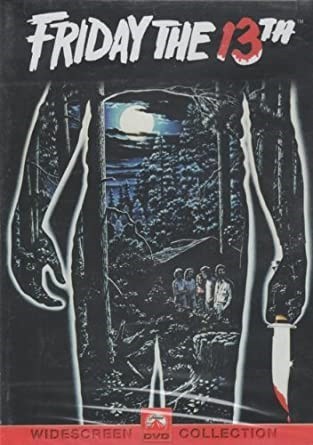SECOND CIRCUIT KILLS COPYRIGHT CLAIM IN HORROR-MOVIE CASE
In an aptly named case the U.S. Court of Appeals for the Second Circuit killed a movie producer’s claim to own the copyright in the Friday the 13th screenplay. Horror Inc. v. Miller, 15 F.4d 232 (2d Cir. 2021). The court upheld the district court’s ruling that writer Victor Miller could reclaim the copyright in the screenplay because, contrary to the producer’s argument, Miller did not create the screenplay as an employee.
Section 203(a) of the Copyright Act, 17 U.S.C. § 203(a), allows an author (or, if the author is dead, to the author’s heirs) to terminate a copyright assignment or license “at any time during a period of five years beginning at the end of thirty-five years from the date of execution of the grant.” However, this right does not apply to a “work made for hire” as defined in Section 101 of the Copyright Act., 17 U.S.C. § 101. Works made for hire include all works created by employees within the scope of their employment.
In 1979 the success of the low-budget horror film Halloween prompted Sean S. Cunningham, a movie producer, director, and writer, to engage Miller to write a screenplay for a horror film. Miller was a member of the Writers Guild of America (WGA), East, and he executed a standard WGA contract with Manny Company, a Connecticut limited partnership of which Sean S. Cunningham Films Ltd. was the general partner. Titled “Employment Agreement,” the contract specified that Manny “employ[ed] the Writer [i.e., Miller] to write a complete and finished screenplay for a proposed motion picture to be budgeted at [under] $1 million, and presently entitled or designated Friday 13.”
Miller drafted the screenplay at his home, using his own typewriter but taking into account “notes or suggestions” that Cunningham provided on Miller’s drafts. The parties disagreed on the extent to which Cunningham influenced the contents of the screenplay. Cunningham claimed that sometimes, while “Miller drafted on his typewriter, [Cunningham] stood over [Miller’s] shoulder making suggestions and contributions.” Miller contended that “Cunningham did not dictate what [Miller] should do or write,” and Cunningham himself revised the title page of a draft to show potential investors so that it listed Miller as the sole author of the screenplay.
Cunningham accepted an offer from investor Phil Scuderi, the principal of Georgetown Productions, Inc., to finance Friday the 13th in exchange for giving Georgetown complete control over the screenplay and the film. One change that Georgetown made—with Miller strongly opposed to it and Cunningham “not fond” of it—was to keep the Jason character alive, thereby “[giving] birth to [him] as an immortal adult killer who returned from the dead, and to numerous sequels in the franchise.”
In 1980 Manny assigned its rights in the screenplay to Georgetown, and Georgetown subsequently registered the copyright it the screenplay as a work made for hire. Horror, Inc., a company owned by persons new to the project, later acquired from Georgetown the rights in the Friday the 13th franchise. The movie Friday the 13th opened on May 9, 1980, becoming an immediate hit and achieving unprecedented box office success for a horror film. The movie has since spawned 11 sequels, among other derivative products.
In 2016 Miller sought to reclaim his copyright under Section 203(a) by serving the requisite notices of termination on Manny and Horror. In response, Manny and Horror sued Miller in the U.S. District Court for the District of Connecticut, seeking a declaration that Miller wrote the screenplay as a work made for hire. Miller counterclaimed, seeking a declaratory judgment to the contrary, and the court granted summary judgment to Miller.
On appeal, the Second Circuit rejected the arguments of Manny and Horror that Miller's WGA membership “inherently” created an employer-employee relationship between Manny and Miller, independent from the 13-factor test set forth in Community for Creative Non-Violence v. Reid, 490 U.S. 730 (1989), for assessing whether in the copyright context a work was prepared as a work made for hire. Those factors are:
- The hiring party’s right to control the manner and means by which the work is accomplished;
- The skill required to create the work;
- The provision of employee benefits;
- The tax treatment of the hired party;
- Whether the hiring party has the right to assign additional projects to the hired party;
- The source of the instrumentalities and tools;
- The location of the work;
- The duration of the relationship between the parties;
- The extent of the hired party’s discretion over when and how long to work;
- The method of payment;
- The hired party’s role in hiring and paying assistants;
- Whether the work is part of the regular business of the hiring party; and
- Whether the hiring party is in business.
490 U.S. at 737. The Second Circuit has ruled that the first five factors are the most important. Aymes v. Bonelli, 980 F.2d 857, 860 (2d Cir. 1992).
In the Horror case the court held although “Cunningham’s involvement reflected limited control over Miller's creative process,” when, “[v]iewing the facts in the light most favorable to the Companies [i.e., Manny and Horror]” as the court was required to do in ruling on Miller’s motion for summary judgment, “the right-to-control factor tips slightly in the Companies’ favor.” But the court held that the skill factor supported Miller’s claim to have been an independent contractor. As the court noted, “Miller was working as a screenwriter beginning well before 1979. And Miller had already received a graduate degree studying theatre and had ‘written several published novels and the screenplays for three produced films’.”
With regard to the third factor the court said that “because Manny did not provide Miller any traditional employee benefits, the employee benefits factor weighs heavily in Miller's favor.” The court reached the same conclusion with respect to the fourth factor, holding that “because the Companies failed to raise an issue of material fact as to whether Manny withheld some of Miller's compensation for tax purposes, the tax-treatment factor weighs in favor of Miller's independent contractor status.”
Regarding the fifth factor, whether the hiring party has the right to assign additional projects, the court noted that the contract “describes the job that it covers as ‘all of the writing necessary to complete the final screenplay,’ no more, no less.” Thus, the court held that this factor also weighed in favor of Miller's independent contractor status. Then the court briefly discussed the remaining eight factors, finding that “on balance [they] also favored treating Miller as an independent contractor.”
Finally, the court considered the argument of Manny and Horror that the Copyright Act’s three-year statute of limitations precluded Miller from seeking reclamation of his copyright. Manny and Horror claimed the copyright notice on the cover page of the screenplay—“© Copyright 1979 Sean S. Cunningham Films, Ltd. All Rights Reserved”—functioned as an express repudiation of Miller's authorship. They also claimed that a press release about the film and Georgetown’s copyright registration for the screenplay expressly repudiated Miller's authorial rights. But the court said that “viewing the evidence in the light most favorable to the Companies, no reasonable factfinder could conclude that they expressly repudiated Miller's authorship of the [s]creenplay in a manner sufficient to trigger the start of the statute of limitations period. Accordingly, we conclude without difficulty that Miller's authorship claim was timely.”
For those reasons the court granted Miller’s motion for summary judgment, affirming the decision of the district court that Miller could terminate his earlier grant of copyright interests in the screenplay for Friday the 13th.
Cover of DVD of Friday the 13th:

TRADEMARK BOARD FINDS “REPUBLIC OF LONDON” NOT GEOGRAPHICALLY DECEPTIVELY MISDESCRIPTIVE
The U.S. Trademark Trial and Appeal Board (TTAB) reversed an Examining Attorney’s refusal to register REPUBLIC OF LONDON as a trademark for various clothing items on the alleged grounds that the mark is primarily geographically deceptively misdescriptive. In re Jonathan Sibony, 2021 U.S.P.Q.2d 1036 (T.T.A.B. 2021) [precedential] (Opinion by Judge Jonathan Hudis).
Jonathan Sibony, a Canadian individual, applied to register REPUBLIC OF LONDON in standard characters for “belts for clothing; blazers; blouses; capris; coats; dresses; jeans; pants; pullovers; shirts; skirts; suits; sweaters; t-shirts; ties.” The application was based on both an intent to use the mark in U.S. commerce and a pending Canadian application for the mark. During the prosecution of the application Mr. Sibony conceded that his goods do not originate from London, England. The Examining Attorney then refused to register the mark, and Mr. Sibony appealed to the TTAB.
Section 2(e)(3) of the Trademark Act, 15 U.S.C. 1052(e)(3), prohibits the registration of marks that “when used on or in connection with the goods of the applicant is primarily geographically deceptively misdescriptive of them.” To deny an application under that section, the TTAB said, the Examining Attorney must demonstrate all of the following points:
“(1) the primary significance of the mark is a generally known geographic place or location; (2) the goods for which applicant seeks registration do not originate in the geographic place identified in the mark; (3) purchasers would be likely to make a goods-place association; that is, purchasers would be likely to believe that the goods originate in the geographic place identified in the mark; and (4) the misrepresentation regarding the geographic origin of the goods would be a material factor for a significant portion of the relevant consumers deciding whether to buy the goods in question” (citing In re Miracle Tuesday, LLC, 695 F.3d 1339 (Fed. Cir. 2012); other citations omitted).
The TTAB began its analysis by noting that a mark refused registration under Section 2(e)(3) of the Trademark Act must be primarily geographic, “that is, its primary significance to the relevant consumers in the United States is that of a generally known geographic location” (citation omitted). The Examining Attorney based her argument largely on the fact that London is a famous U.K. city, but the TTAB said that the issue was not whether the LONDON element of the mark was primarily geographic but whether the mark THE REPUBLIC OF LONDON as a whole was primarily geographic.
The TTAB cited In re Miracle Tuesday as an example of a case where the mark JPK PARIS 75 and Design (with “Paris” disclaimed) as intended for use with “sunglasses, wallets, handbags and purses, travel bags, suitcases, belts, and shoes” was found to be primarily geographic because “the terms JPK and 75 as well as the design elements . . . did not detract from the primary meaning of the term PARIS as a known geographic location.” 695 F.3d at 1343. But the TTAB concluded that “the addition of ‘REPUBLIC OF . . .’ to the term LONDON forms a phrase which, as its primary meaning, conveys a fictitious or whimsical location.” Given the Examining Attorney’s concession that “REPUBLIC OF LONDON is fictitious,” the TTAB said, “as a whole the primary significance of the mark is not a generally known geographic place or location.”
Having found that THE REPUBLIC OF LONDON was not primarily geographic, the TTAB said it did not need to apply the other three prongs of the test for determining whether a mark is primarily geographically deceptively misdescriptive. The TTAB therefore reversed the Examining Attorney’s refusal to register the mark.
Sibony’s specimen of use for his trademark REPUBLIC OF LONDON:

